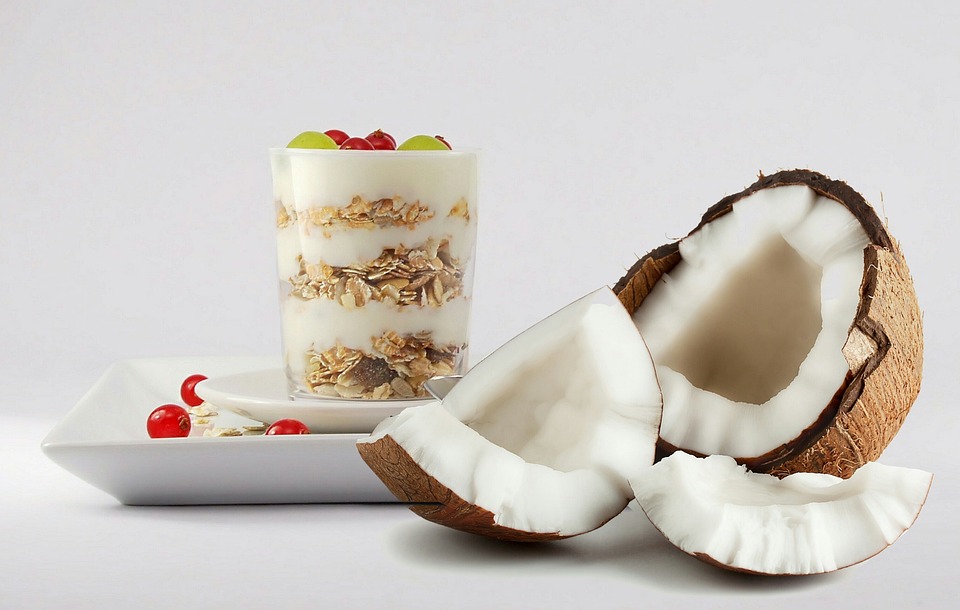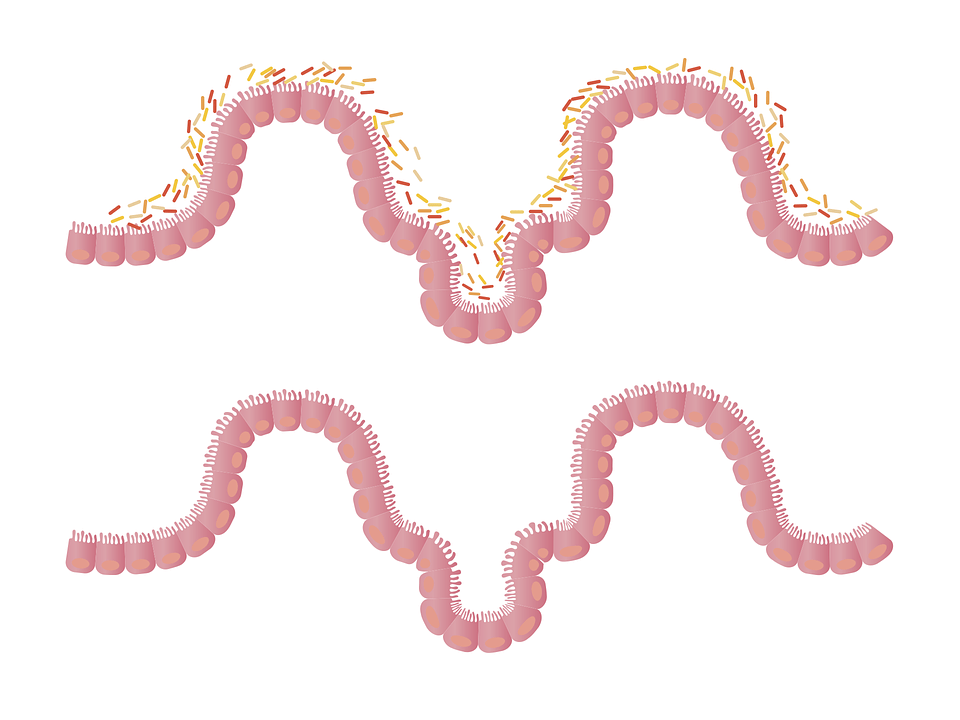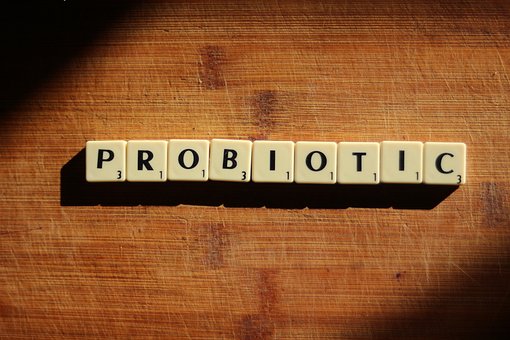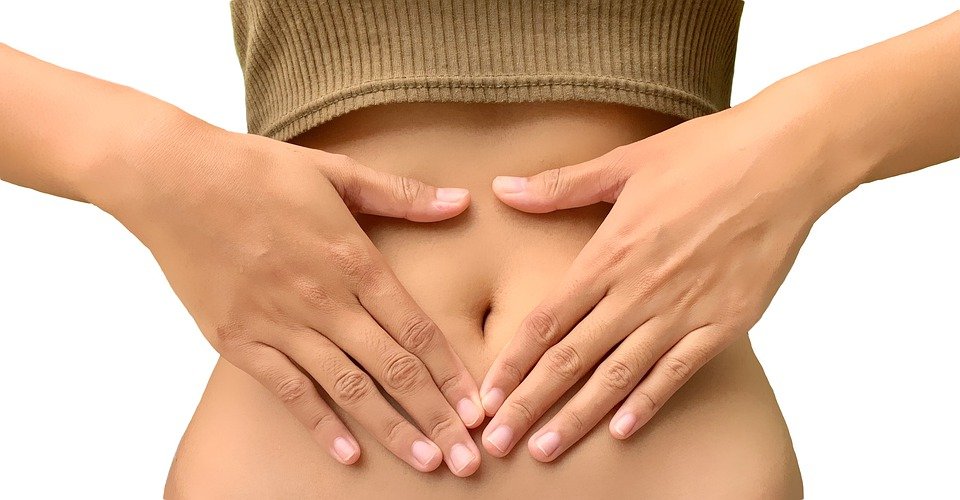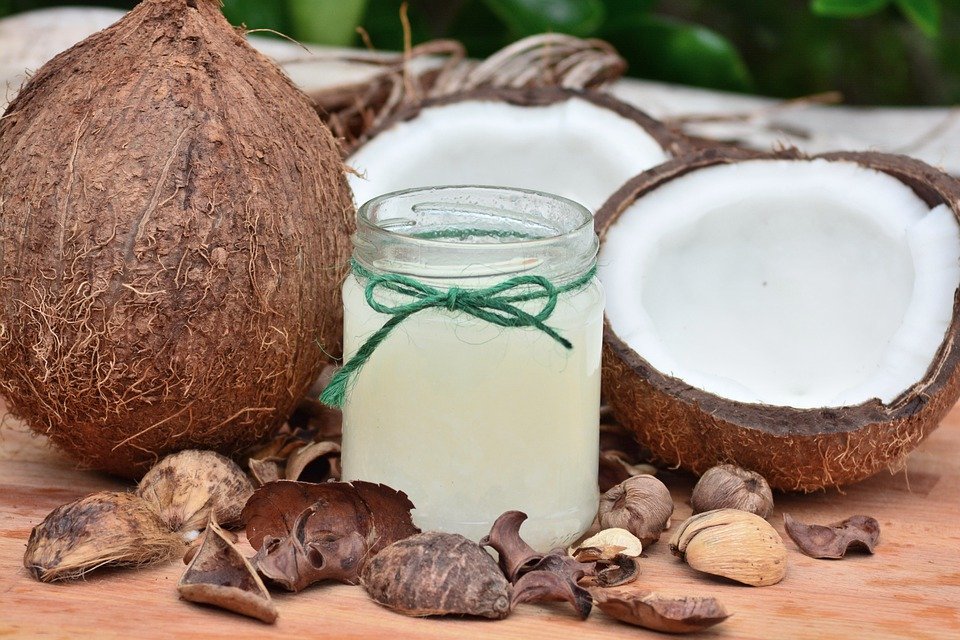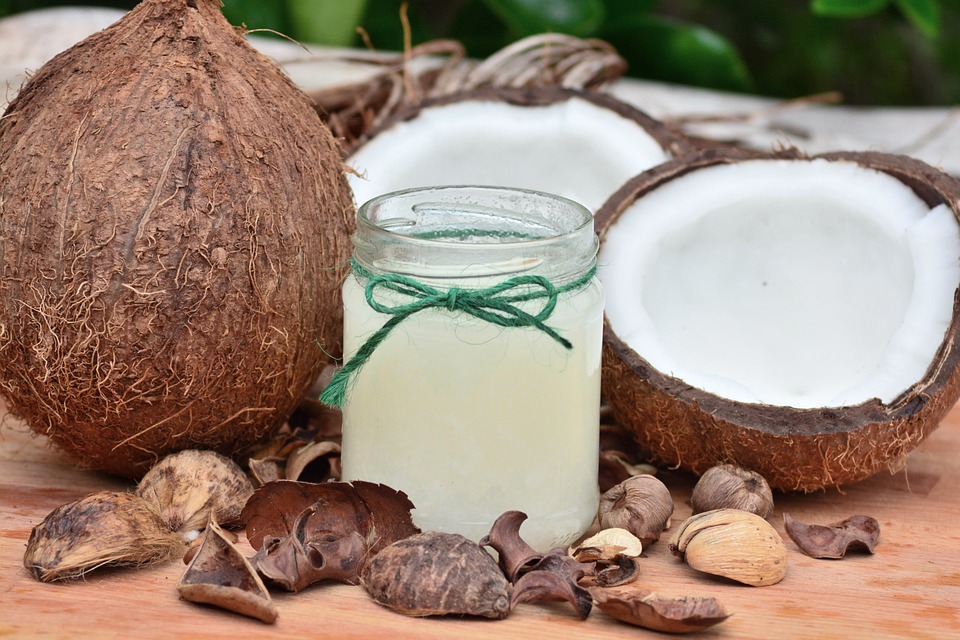
It has taken a while, but oil pulling is starting to become more well-known in the United States. Consuming coconut oil and using it for oil pulling is an exceptional way to get rid of bacteria and ensure healthy teeth and gums.
Studies have demonstrated that this is a better technique than flossing. Find out the origins of it, the advantages of it, and how to implement it.
What Is Oil Pulling?
The traditional Ayurvedic practice of oil pulling or gandusha involves swishing a tablespoon of oil such as coconut, olive or sesame oil in the mouth for 10-20 minutes. It is used as a way to detoxify and cleanse the oral cavity.
Oil pulling has the same cleansing effect on the mouth that soap has on soiled dishes. It literally draws out any dirt (toxins) from your mouth and forms a clean, sterile oral atmosphere that helps the right movement of dental liquid needed to keep off cavities and sickness.
History
It is unimaginable to many of us to think of not brushing and flossing our teeth regularly. Despite being commonplace now, brushing teeth is rather modern, since it was only popularized during the late 1930s. Furthermore, a lot of people do not have a habit of flossing regularly.
It is essential to bear in mind that despite the fact that most people in the United States of America were raised brushing their teeth with toothpaste, our ancestors did not utilize the same for thousands of years. As archaeological records imply, the vast majority of people in the past typically lived until a very advanced age, with a good majority of their teeth remaining in excellent health.
Why didn’t their teeth rot?
In the beginning, they only ate natural food, not manufactured items that had added sugars and grains with phytic acid, which erodes the tooth enamel. Additionally, ancient Egyptians practiced dental hygiene by using twigs as brushes to scrub against their teeth, which has been discovered in Egyptian burial sites from over 5000 years ago. In many parts of the world, depending on the culture and area, oil pulling has been a popular practice.
10 Benefits Of Oil Pulling With Coconut Oil
1. Improve Immunity
It has been widely said that oil pulling is an extremely effective way to detoxify the body and increase immunity.
By swishing oil in your oral cavity for several minutes, you can cleanse parts such as between the teeth, underneath the gum line, the tongue, and on the surface of the teeth – removing bacteria. When you expel the oil through spitting, you are getting rid of the microorganisms from your system.
If one gets rid of these small intruders in the mouth, they won’t be able to reach the stomach—which is home to 80% of our immunity.
2. Boost Energy Levels
It may be possible that when we don’t have a lot of energy, our immune system can be overtaxed. Strengthening the immune system allows the body to focus its energy on other tasks.
People who regularly perform the oil-pulling technique claim that within two weeks you will have an increased level of energy.
3. Get Smooth & Glowing Skin
How can oil-pulling heal skin?
That is an excellent inquiry – there appears to be little to no connection between the two.
However, ailments like acne, rosacea, dermatitis, and psoriasis can be related to the well-being of your digestive system. It is an established fact that there is an interconnectedness between the gut and the skin which scientists have been aware of for the past century.
Once the bacteria in the intestines are properly balanced, then the dermis can commence the process of recovery, resulting in a luminous appearance.
4. Cure Bad Breath
The best-supported advantage of oil pulling is that it can make your dental hygiene better, including getting rid of bad breath (halitosis) that is generally due to bacteria.
In 2011, a study was conducted to determine the efficacy of sesame oil for oil pulling in the treatment of bad breath and was compared to the results of conventional mouthwash.
After two weeks of oil pulling, scientists observed that symptoms of bad breath – evaluated through the taking of tongue scrapings and smell tests – noticeably decreased.
They determined that oil-pulling was just as proficient as chlorhexidine, an antiseptic utilized in mouthwash, in treating bad breath and the germs associated with it.
Follow-up research conducted three years later corroborates these discoveries.
After a period of three weeks, consequences of the study revealed that people participating saw a noteworthy decrease in plaque, gingivitis, feelings of a bad taste in the mouth, and levels of oral bacteria, in both those taking part in oil-pulling and those using chlorhexidine (mouthwash), yet this was not expressed in the control group, thus, verifying the notion that oil pulling is an equally as an effective to mouth rinses for getting rid of bad breath.
5. Reduce Tooth Decay
The National Institute of Dental and Craniofacial Research states that tooth decay is the most frequent, continual health issue among children and adults, even though it can be averted.
It has been suggested by research published in the Journal of Ayurveda and Integrative Medicine that oil pulling can be used as a way to help avoid this health problem.
An investigation that examined comprehensive strategies for oral hygiene revealed that oil pulling is one of the most successful natural treatments for forestalling the decay of teeth and their shedding.
6. Prevent Gingivitis
Gingivitis is a frequent and mild form of periodontal illness that leads to soreness, redness, and swelling of the gums.
When investigators analyzed the impacts of using sesame oil swishing, they discovered that this traditional methodology was just as effective in diminishing the plaque that causes gingivitis as utilizing typical mouthwash.
The research participants noted a decrease in plaque and gum inflammation over a period of ten days of using oil pulling. Furthermore, they experienced a decrease in the number of microorganisms present in the mouth.
It’s not just sesame oil that provides a cure.
A study conducted in 2015 examined the effects of coconut oil on gingivitis over a month-long timeline.
Researchers discovered that both plaque and inflammation of the gums decreased significantly within a week of using coconut oil and the effect persisted throughout the rest of the month.
7. Say Goodbye to Sensitivity
If you are uncomfortable when taking a bite out of an ice cream or feel a burning sensation when drinking hot coffee, then it appears as though you have sensitive teeth.
Individuals who are committed to oil-pulling consider that the sensitivity of the teeth diminishes as a pleasant added benefit of swishing oil around each day.
Although there are no studies on this subject, it is logical to assume that oil-pulling can cure tooth sensitivity due to its ability to remove decay near the gum line, gingivitis, plaque, and inflammation by getting rid of bacteria.
Mouthwashes can cause sensitivity in the teeth, which can be avoided by utilizing oil pulling instead.
8. Whiten Teeth
Not brushing and flossing properly and having poor oral hygiene can cause teeth to stain, so oil pulling might be able to restore the whiteness of your teeth.
This healthy behavior has been said to have potential long-term consequences, though there is not much proof to back it up.
9. A Safer Alternative to Mouthwash
When you begin the habit of oil pulling, there is no need to purchase store-bought mouthwashes any longer.
Using alcohol-containing mouthwashes may help to defend against dental issues such as cavities, gum disease, and canker sores, however, there might be a relationship between this type of mouthwash and oral cancer.
A research paper, which was listed in the American Journal of Epidemiology, investigated the occurrences of 924 head and neck cancer instances in Europe and 1,824 instances in Latin America.
The authors discovered that gargling with a mouthwash containing at most 30% alcohol on a twice-daily basis was linked to a heightened likelihood of developing head and neck cancer.
Studies conducted since the 1970s have yielded similar outcomes. Yet others show no link.
The American Dental Association Council on Dental Therapeutics has announced that evidence currently indicates that using mouthwash that contains alcohol is safe.
The Centers for Disease Control and Prevention don’t have proof that alcohol-containing mouthwash causes oral cancer, but they still advise that people avoid using too much of it.
We are being exposed to various dangerous chemicals on a regular basis due to the personal and skincare products we use, therefore it can only be beneficial to get rid of at least one of them.
10. Help Your Heart
Studies are increasingly demonstrating that bacteria and inflammation in the oral cavity can be linked with conditions, such as stroke and dementia.
Researchers hypothesize that irritation caused by periodontal disease could explain the relationship between the two ailments. Poor oral hygiene can also exacerbate existing heart conditions.
In addition, the American Journal of Preventive Medicine discovered in 2014 that by remedying gum ailment, it can result in enhanced well-being, reduce medical expenses, and lessen hospital visits for individuals with regular health problems.
The medical and dental insurance archives of almost 339,000 individuals who had gum disease and any of the five medical conditions (type 2 diabetes, cardiovascular disease, cerebrovascular disease, rheumatoid arthritis, or pregnancy) were studied by researchers.
People not diagnosed with rheumatoid arthritis experienced lower medical expenses and fewer hospital stays within four years of receiving gum disease treatment, as opposed to those that underwent no treatment.
Why Coconut Oil
It is not a surprise that a lot of Ayurveda doctor healers utilize sesame oil while executing gandusha as it is very common in India. I would like to propose employing advantageous coconut oil as an alternative.
Why? Because coconut oil has been shown to:
- Balance hormones
- Battle candida
- Improve digestion
- Moisturize skin
- Reduce cellulite
- Decrease wrinkles and age spots
- Balance blood sugar and improve energy
- Increase HDL cholesterol and lower LDL cholesterol
Since it can be easily taken in, you can gain a lot of advantages from oil pulling. Be sure to use coconut oil that has not been modified so there are no extra ingredients. Unprocessed coconut oil is 100% natural, so it won’t contain any hazardous synthetic components.
You could also consider using sunflower seed oil, though I would still recommend coconut oil pulling due to the reasons mentioned earlier. Furthermore, as analysts have investigated further into coconut oil pulling particularly, they have found that it has the capabilities to battle Streptococcus mutans, gingivitis, and more.
How to Do Oil Pulling
This is how I like to do coconut oil pulling:
- Make sure to oil pull first thing in the morning right after you get out of bed — before you brush your teeth or drink anything. Often it’s a great thing to do in the shower.
- Gently swish one tablespoon of coconut oil in your mouth and between your teeth for 10–15 minutes, making sure that you don’t swallow any of the oil. (Do this gently so you don’t wear out your jaw and cheeks!)
- Spit out the oil in the trash (not the sink so it doesn’t clog up the plumbing), and immediately rinse your mouth out with warm water (use salt water for added antimicrobial properties).
- Finally, brush your teeth as normal.
- Voila, easy as that!
I suggest trying oil pulling with coconut oil on a regular basis, 3 to 4 times a week. You can also add essential oils to the mixture for extra benefits.
As it stands, it is evident that oil pulling with coconut oil is a straightforward process that yields remarkable outcomes. If 10–20 minutes sounds like a lengthy period, try doing oil pulling while you shower or while on your way to work in the morning. It is possible to do this while you take care of tasks around the house to occupy your time.
Oil Pulling with Essential Oils
Essential oils are incredibly powerful antimicrobials and antifungals and can make oil-pulling better and safer. Additionally, when essential oils are taken orally, they get absorbed by the mucosal membranes of the mouth and can provide a range of health benefits due to their antioxidant and medicinal properties.
Here are two of my favorite ways to use essential oils during my morning oil-pulling routine:
- For everyday use: Add 3 drops of wild orange, lemon, or peppermint with 1 tablespoon of coconut oil.
- When battling an infection or sickness: Change it up a bit and mix clove oil, cinnamon oil, or tea tree oil as a homeopathic remedy.
Is Oil Pulling Dangerous?
Here are some common questions asked about oil pulling:
1. What age is good for oil pulling?
Swishing the oil around in the mouth before spitting it out should not cause any harm, even in young children. Consider using a lesser amount of oil, roughly between half a teaspoon to one teaspoon. It’s important that it feels comfortable and you should have an enjoyable time, not something to dread. If someone is unhappy with the state of their dental health and wants to repair it, I would recommend altering their eating habits in order to fix their cavities organically.
2. Can I pull oil if I have fillings?
According to the Coconut Research Center:
Oil pulling will not have an effect on crowns and fillings that have been placed correctly. Oil pulling is only likely to have an impact on crowns or fillings if the teeth beneath them have been infected and rotted. In this instance, the teeth on which the crowns or fillings are placed are far too decayed for the dental material to be able to stay in place. Oil pulling removes bacteria, pus, and mucus. It is not able to extract porcelain, amalgam, or composite dental substances from the teeth.
A filling can only get loose if there is decay or an infection in the tooth. To prevent the spread of the infection, you must take steps to resolve the problem.
3. Why do I have to oil pull in the morning?
You don’t. It’s optimal to undertake oil pulling at the start of the day, before having anything to eat, though you could experiment with other times as well.
4. Why do I have to oil pull for so long?
When oil pulling, the oil is expended as you swish it around your mouth. After around 15 minutes, the liquid will get thin and may appear cloudy. If you use a reduced quantity of oil for your oil pulling, you could observe an alteration in consistency earlier, however, it is important to make sure there is an adequate amount to really scrub your mouth and teeth.

